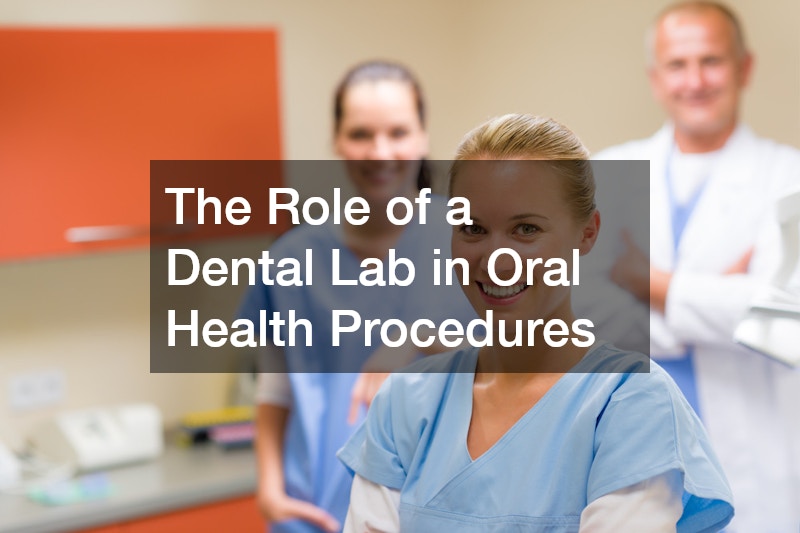The field of oral health is multifaceted, and dental labs play an integral role in ensuring the success of various treatments and procedures. These labs are vital in transforming a dentist’s prescription into tangible, tailored solutions that enhance oral health. The precision and expertise dental labs offer underscore their essential role in oral care.
What is a Dental Lab and What Services Does it Provide?
Dental laboratories are specialized facilities where trained technicians create custom-made dental products to assist dentists and orthodontists with patient care. They provide crucial services such as fabricating dental prosthetics like crowns, bridges, and dentures, which are essential to restoring function and aesthetics. Additionally, these labs produce orthodontic devices, mouthguards, and other therapeutic appliances tailored to individual patient needs. By working closely with dental professionals, labs ensure that each product aligns precisely with clinical prescriptions and patient-specific requirements.
Each product created in a dental lab is uniquely designed to accommodate the specific contours and conditions of a patient’s mouth, ensuring optimal fit and function. Dental lab work is characterized by meticulous attention to detail, requiring precision and skill to achieve the desired results in dental restorations and appliances. According to industry reports, dental labs handle over 38,000 dental cases annually in the United States, underscoring their pivotal role in the dental care ecosystem. This extensive caseload reflects the demand for their services and the trust placed in their expertise across a wide range of dental treatments.
How Do Dental Labs Impact the Success of Oral Health Procedures?
The success of any dental treatment often hinges on the quality of support provided by the dental laboratory. Dental labs ensure that prosthetics and devices are visually appealing and functionally effective, contributing significantly to durable and long-lasting patient outcomes. Precision and attention to detail in crafting dental products directly influence the success rate of treatments, as even minor discrepancies can lead to discomfort or failure. This underscores the importance of selecting laboratories prioritizing excellence and precision at every production stage.
Moreover, dental labs employ skilled technicians who are well-versed in the nuances of dental materials and patient-specific requirements, further enhancing the quality of care. The collaboration between dental labs and practitioners allows for rapid adjustments and corrections, ensuring patients receive the best fit and function from their dental appliances. National standards emphasize that dental labs must adhere to meticulous quality control measures to achieve the standards expected in oral health treatments. Consistent adherence to these standards safeguards patient well-being and reinforces trust in dental lab partnerships.
What Technologies are Used in Modern Dental Labs?
Modern dental laboratories are at the forefront of adopting innovative technologies that significantly enhance their capabilities. Computer-aided design (CAD) and computer-aided manufacturing (CAM) technologies have revolutionized the way dental prosthetics are designed and fabricated, allowing for greater precision and efficiency in production. In addition, 3D printing has emerged as a game-changer in the dental industry, enabling the creation of complex structures quickly and cost-effectively. These advancements increase production capacity and support greater consistency and reproducibility in dental restorations.
These technologies ensure that dental labs can provide customized solutions with unparalleled accuracy, meeting each patient’s distinct needs. Integrating digital workflows in dental labs streamlines the production process, reducing turnaround times for dental appliances while maintaining high-quality standards. Additionally, innovative materials used with these technologies offer improved strength, aesthetics, and biocompatibility, leading to better patient satisfaction and treatment success. As a result, dental professionals can deliver more predictable outcomes, enhancing trust in lab-produced restorations.
How Do Dental Labs Collaborate with Dentists and Oral Health Professionals?

The synergy between dental laboratories and oral health professionals is pivotal in optimal patient care. Effective communication and collaboration ensure dental labs are accurately informed of each dental case’s specific requirements and expectations. This collaborative process involves detailed discussions and exchanges of information, allowing dental labs to tailor their products to align precisely with the practitioner’s clinical objectives. Such coordination enhances the precision of dental restorations and minimizes the likelihood of errors or delays in treatment.
Furthermore, this partnership fosters a continuous feedback loop, enabling both parties to refine workflows and outcomes over time. Trusted relationships between dental labs and practitioners contribute to streamlined processes and improved treatment results, benefiting patients immensely. Industry experts report that ongoing collaboration and communication between dental labs and dentists are key factors driving advancements in dental care quality. This cooperative dynamic encourages innovation and supports adopting best practices across the field.
Dental laboratories are crucial in enhancing oral health outcomes through their meticulous craftsmanship, advanced technological applications, and seamless collaboration with dental professionals. By providing quality services integral to the success of treatment plans, dental labs ensure that patients receive both functional and aesthetic benefits from their dental procedures. The future of oral health care continues to be shaped by these labs, as they innovate and refine their approaches to meeting diverse patient needs. As dental technologies evolve, labs increasingly leverage digital tools to improve accuracy and efficiency in their work further.

